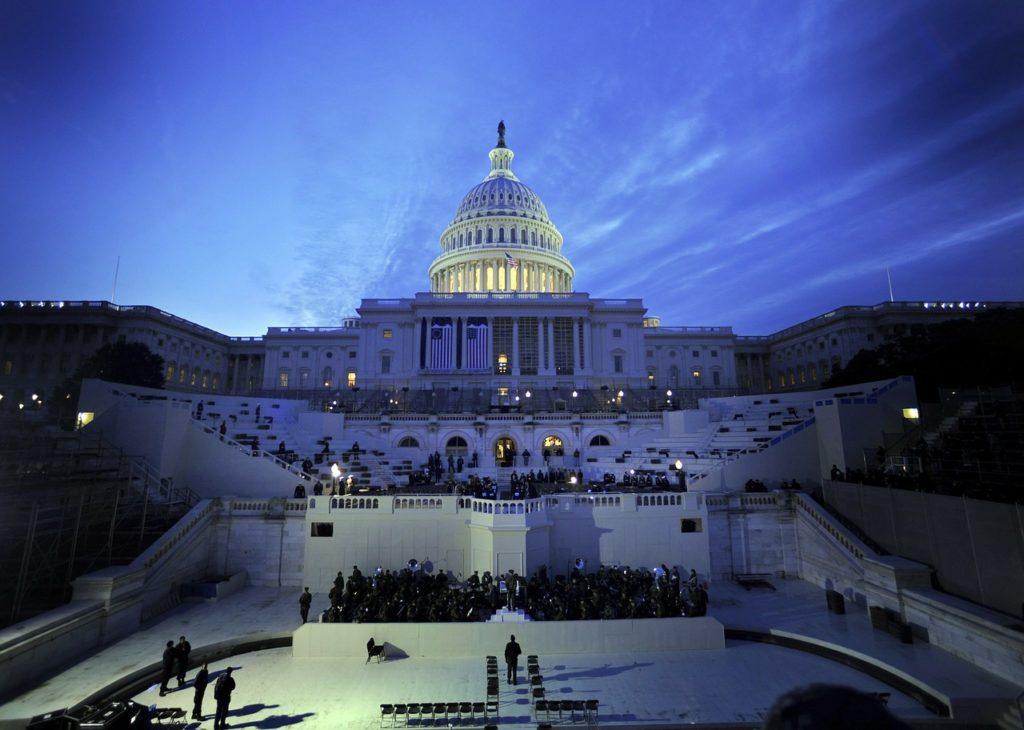The number of cosponsors for the Palliative Care and Hospice Education and Training Act has reached the 290 the bill needs to come to a vote in the U.S. House of Representatives.
A second bill, the Rural Access to Hospice Act, will likely be folded into a larger yet-to-be-determined piece of legislation.
If enacted, PCHETA would establish fellowship programs within new palliative care and hospice education centers to provide short-term, intensive training on palliative care and hospice. The courses would provide supplemental training for medical school faculty as well as other educators in health care fields such as nursing, pharmacy, social work and chaplaincy.
The centers would also develop curricula related to palliative care and support continuing education, retraining of faculty, practical clinical training and establish training programs for advanced practice nurses.
A similar bill was introduced in the Senate in July and currently has 31 cosponsors.
“PCHETA is an imperative. We are running into provider shortages. As we approach 2030 there are estimates that the population of people age 65 and older is going to grow exponentially, and at the same time the population of physicians that we have right now will be looking at their own retirement,” Emily Baehr, director of hospice services for St. Barnabas Hospice in Pennsylvania, told Hospice News. “We are seeing an increased need for clinicians in hospice, palliative and geriatric medicine, and so PCHETA is really pushing to get education programs not just for the current providers, but also to ensure that there are enough providers that are trained appropriately to meet those needs down the line.”
The United States has 13.35 hospice and palliative care specialists for every 100,000 adults 65 and older, according to an April 2018 study. The research estimated that by 2040 the patient population will need 10,640 to 24,000 specialists; supply is expected to range between 8,100 and 19,000.
Hospice and palliative care providers also experience shortages in non-physician disciplines, including chaplains, nurses, and social workers. As far back as 2008, the U.S. Centers for Medicare & Medicaid Service (CMS) began allowing hospice providers to use contracted nursing staff because not enough nurses were available to fill permanent positions.
Through still seeking cosponsors, the bill has widespread bipartisan support.
“There is really not much opposition. PCHETA is bipartisan and bicameral. These are things that people can really get behind,” Kelly Coons, provider relations manager for AseraCare Hospice, said. “The biggest thing with the holdouts is that they are looking for pairing. They want a Republican and a Democrat so that the numbers are even. A lot of the [congressional] staffers have personal stories about experiences they have had with family members or friends who have gone through hospice, and can really relate as to why these things would improve care or improve the benefit.”
In addition to establishing education centers, PCHETA would create grant programs to support education, workforce development and retention programs for palliative care and hospice nurses and would create grants for teaching hospitals and graduate medical education programs to train palliative care physicians. Programs receiving grants would be required to develop performance measures to ascertain trainee competency.
PCHETA would also direct the National Institutes of Health to use existing funds to expand palliative care research, as well as finance awareness programs to educate the public about hospice and palliative care.
The second piece of hospice legislation under consideration on Capitol Hill is the Rural Access to Hospice Act.
“For the Rural Access to Hospice Act they are still looking for more cosponsors,” Patricia Ramsden, director of admissions for Massachusetts-based hospice provider Care Dimensions, told Hospice News. “The bill is currently being scored, meaning that [legislators] are thinking the bill language would probably be incorporated into a piece of bigger legislation down the road.”
Under current law, rural health clinics (RHCs) and federally qualified health centers (FQHCs) cannot bill Medicare under Part B for hospice services, which prevents some patients from receiving care from their trusted primary care practitioner. The Rural Access to Hospice Act aims to level the playing field by allowing RHCs and FQHCs to receive payment for practitioners’ services while caring for their patients in hospice care.
According to data from the Medicare Payment Advisory Commission (MedPAC), only 32% of those eligible for hospice care utilize the service in rural communities compared to 48% in urban areas.
Baehr, Ramsden and Coons recently travelled to Washington to advocate for the two pieces of legislation as part of the National Hospice & Palliative Care Organization’s hospice ambassadors program, meeting with legislators and congressional staff.
“When person has had their physician for the past 20-25 years and they live in a rural area, they would have to choose a different attending physician or travel to a different area in order to utilize their hospice benefit,” Baehr said regarding the Rural Access to Hospice Act. “That’s not necessarily very comfortable for people who have a good relationship with the physician they have. The bill would allow them to keep their current attending physician who would be able to bill Medicare differently and therefore follow that patient through their hospice care.”
Companies featured in this article:
AseraCare, CareDimensions, National Hospice and Palliative Care Organization, St. Barnabas Hospice



